In today’s fiercely competitive manufacturing landscape, B2B marketers must constantly evolve strategies to maintain a competitive edge. Manufacturers can optimize their marketing efforts and drive sustainable growth by leveraging cutting-edge technologies and data-driven approaches. Here are some critical strategies that B2B marketers in the manufacturing industry should focus on to stay ahead:
Incorporating Artificial Intelligence (AI) into Your Workflow
Artificial intelligence is revolutionizing B2B marketing in the manufacturing sector. By harnessing the power of AI, marketers can streamline operations, enhance decision-making, and deliver more personalized experiences to their clients. Check out Perplexity, which is my favorite lately (with the Claude 3.5 Sonnet engine).

AI-Powered Content Creation: Generative AI tools can help marketers produce large-scale, industry-specific content. For example, AI can assist in creating product descriptions, technical specifications, and even blog posts tailored to your target audience. This lets your team focus on higher-level strategic tasks while maintaining a consistent flow of relevant content.
Predictive Analytics: AI algorithms can analyze vast amounts of data to predict customer behavior, identify potential leads, and optimize marketing campaigns. By leveraging these insights, manufacturers can allocate resources more effectively and target their efforts towards the most promising opportunities].
Chatbots and Virtual Assistants: Implementing AI-powered chatbots on your website can provide instant support to potential clients, answer technical questions, and guide them through the sales funnel. This 24/7 availability can significantly improve customer experience and lead generation].
Focusing on Metrics and Data-Driven Decision-Making

In the manufacturing industry, where margins can be tight and competition fierce, data-driven decision-making is crucial for marketing success. By focusing on the right metrics, B2B marketers can optimize their strategies and demonstrate clear ROI to stakeholders.
Key Performance Indicators (KPIs): Identify and track the most relevant KPIs for your manufacturing business. Some essential B2B marketing metrics include:
- Marketing Qualified Leads (MQLs)
- Sales Qualified Leads (SQLs)
- Cost per Lead
- Customer Acquisition Cost (CAC)
- Return on Investment (ROI)
- Customer Lifetime Value (CLV)
Analytics and Reporting: Implement robust tools to gather and analyze data from various marketing channels. Regular reporting on these metrics will help you identify trends, optimize campaigns, and make informed decisions about resource allocation.
Closed-Loop Reporting: Implement a system that tracks the entire customer journey, from initial touchpoint to final sale. This allows you to attribute revenue to specific marketing efforts and refine your strategies accordingly.
Personalized Communications with Marketing Automation and Nurturing

In the complex world of B2B manufacturing, personalized communication is vital to building solid relationships with clients. Marketing automation and nurturing strategies can help you deliver tailored messages at scale.
Account-Based Marketing (ABM): Implement ABM strategies to target high-value accounts with personalized content and messaging. This approach is particularly effective in the manufacturing sector, where deals often involve multiple stakeholders and long sales cycles.
Automated Email Campaigns: Use marketing automation tools to create targeted email campaigns based on customer behavior, preferences, and stage in the buying journey. For example, you can create automated workflows to nurture leads with relevant content about your manufacturing processes, product innovations, or industry insights.
Dynamic Website Personalization: Leverage AI and marketing automation to deliver personalized website experiences. This can include tailoring content, product recommendations, and calls-to-action based on a visitor’s industry, company size, or previous interactions with your brand.
Embracing Content Marketing and Thought Leadership

Establishing your company as a trusted authority is crucial for attracting and retaining clients in the B2B manufacturing space. A robust content marketing strategy can help you achieve this goal.
Industry-Focused Content: Create high-quality, technical content that addresses your target industries’ specific challenges and needs. This can include whitepapers, case studies, technical guides, and blog posts that showcase your expertise and innovative solutions.
Video Marketing: Incorporate video content into your marketing strategy. Videos can effectively demonstrate complex manufacturing processes, product features, or customer success stories.
Webinars and Virtual Events: Host online events that provide valuable insights and foster engagement with your target audience. These can be excellent opportunities to showcase your thought leadership and generate high-quality leads.
Optimizing for Search Engines
Given the technical nature of many manufacturing-related searches, a strong SEO strategy is essential for attracting potential clients.

Keyword Research: Conduct thorough keyword research to identify the specific terms and phrases your target audience uses when searching for manufacturing solutions. Focus on long-tail keywords that reflect the technical nature of your products or services.
Technical SEO: Ensure your website is optimized for search engines by improving site speed, implementing structured data, and creating an XML sitemap. These technical aspects are particularly important for complex manufacturing websites with numerous product pages and technical specifications.

Local SEO: If your manufacturing business serves specific geographic areas, optimize for local search to attract nearby clients. This includes claiming and optimizing your Google My Business listing and ensuring consistent NAP (Name, Address, Phone) information across online directories.
By implementing these critical strategies, B2B marketers in the manufacturing industry can stay ahead of the competition, drive more qualified leads, and ultimately contribute to their company’s growth and success. Remember, the key is to continually adapt and refine your approach based on data-driven insights and emerging technologies. As the manufacturing landscape evolves, so too should your marketing strategies.
Subscribe today not to miss a thing.
My blog posts of the week emailed to you in a nice little (email) package.


